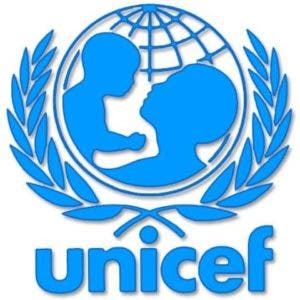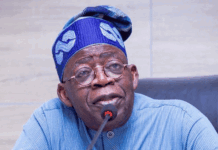.As Nigeria reaffirms partnership with ILO on promoting social justice, decent work
CHIGOZIE AMADI
A new report released on Wednesday by UNICEF and the International Labour Organisation (ILO) says 138 million minors were engaged in child labour worldwide in 2024.
The figure includes 54 million children in work likely to jeopardise their health and safety.
Child labour occurs most frequently in agriculture, with sub-Saharan Africa being the worst-hit,
where 87 million children are affected.
The figures, however, show a decline in child labour to 138 million in the 2021-24 period, down from 160 million in the 2016-20 period.
Nevertheless, the target of eliminating child labour by 2025, included in UN Development Goals, will not be reached.
The report came ahead of the World Day Against Child Labour, which is being marked on Thursday.
Meanwhile, the UNICEF Germany Head, Christian Schneider, said “the new child labour report underlines the grim reality that millions of children are still being denied the right to learn, to play and simply be children in spite of all progress.’
“The successes achieved pointed the way ahead through legal protection, better social protection, investment in free and high-quality education and work with dignity and fair pay for adults.
“These are effective instruments for protecting children from child labour.”
Also, Nigeria has reaffirmed commitment to its partnership with the International Labour Organisation (ILO) towards the continued promotion of social justice and decent work globally.
The Minister of Labour and Employment, Muhammad Dingyadi, stated this in Abuja while responding to the report of the Director-General of ILO, Gilbert Huongbo, at the 113th Conference of the Organisation in Geneva, Switzerland.
Dingyadi said Nigeria shares the ILO’s vision of a just transition and acknowledges that sustainable development hinges on inclusive economic growth, fair labour practices, and robust democratic institutions.
The Minister observed that the Director-General’s report, titled “Jobs, Rights and Growth: Reinforcing the Connection,” aligns with the “Renewed Hope Agenda” of President Bola Ahmed Tinubu, designed to institute “sustained socio-economic prosperity in the country through attaining job creation, inclusiveness, food security, poverty eradication, economic growth, access to capital, improved security of life and property, rule of law, and the fight against corruption.”
Dingyadi noted that the Houngbo’s report rightly focused on accelerating action towards social justice as a driver for sustainable peace and development.
The Minister, who led the Nigerian delegation to the Conference, also emphasised the commitment of the Nigerian government with its tripartite constituents to advancing social justice.
He said Nigeria, in furtherance to this commitment, signed on to the ILO Global Coalition for Social Justice, geared towards building an equitable society for all Nigerians and partnering with the ILO to achieve its goals and global aspirations for the common good.
Dingyadi highlighted other efforts of Nigeria in this regard, such as the approval of collectively negotiated New Minimum Wage in July 2024, aimed at ensuring improved living conditions for workers, as part of a broader strategy for economic fairness, fair distribution of economic gains and decent work.
He added that Nigeria has intensified efforts to eradicate child labour and forced labour, as a pathfinder country under Alliance 8.7, disclosing that the country is “reviewing national legislation, building capacities of partners, strengthening institutions, and implementing community-based programmes to rescue and rehabilitate vulnerable children.
“We are conscious that over 60% of Nigeria’s labour force operates in the informal economy. Therefore, through various MSME support programmes, tax reforms, and digital registration drives, we are transitioning informal businesses into the formal economy, while expanding social protection coverage,” he remarked.
The Minister stated that the Nigerian government has, in this regard, recently reviewed the National Employment Policy to ensure decent work for Nigerians across sectors.
He disclosed that Nigeria has scaled up investments in digital economy, infrastructure and ICT training through initiatives such as the National Digital Literacy Framework, to ensure that the youth and workers are equipped for jobs of the future.
Dingyadi noted that “Nigeria is persuaded that tripartism is an essential principle for lasting industrial peace and harmony. We have institutionalised mechanisms for collective bargaining and regular consultations among constituents to ensure peaceful industrial relations and collaborative policymaking.”
The Minister also stressed the need for all member countries of the ILO to continue to work together to mitigate the threats to their shared prosperity and goals, and chart a pathway towards an inclusive, equitable, resilient, productive and sustainable world. This was contained in a statement signed by Patience Onuobia, Head, Press and Public Relations of the ministry.

























